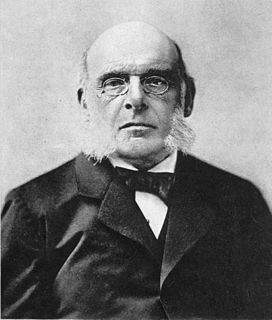A Quote by Matthew Arnold
The Greek word euphuia, a finely tempered nature, gives exactly the notion of perfection as culture brings us to perceive it; a harmonious perfection, a perfection in which the characters of beauty and intelligence are both present, which unites "the two noblest of things" - as Swift most happily calls them in his Battle of the Books, "the two noblest of things, sweetness and light."
Related Quotes
The perfection of the effect demonstrates the perfection of the cause, for a greater power brings about a more perfect effect. But God is the most perfect agent. Therefore, things created by Him obtain perfection from Him. So, to detract from the perfection of creatures is to detract from the perfection of divine power.
What is the purpose for which Masonry exists? Its ultimate purpose is the perfection of humanity. Mankind it self is still in a period of youth. We are only now beginning to acquire a consciousness of the social aim of civilization, which is man's perfection. Such perfection can never end with physical perfection, which is only the means to the end or spiritual perfection.
For the rest, whatever we have got has been by infinite labor, and search, and ranging through every corner of nature; the difference is that instead of dirt and poison, we have rather chosen to fill our hives with honey and wax, thus furnishing mankind with the two noblest of things, which are sweetness and light.
God wanted man to know him somehow through his creatures, and since no creature could fittingly reflect the infinite perfection of the Creator, he multiplied his creatures and gave a certain goodness and perfection to each of them so that from them we could judge the goodness and perfection of the Creator, who embraces infinite perfection in the perfection of his one and utterly simple essence.
Let there be two possible things, A and B, one of which is such that it is necessary that it exists, and let us assume that there is more perfection in A than in B. Then, at least, we can explain why A should exist rather than B and can foresee which of them will exist; indeed, this can be demonstrated, that is, rendered certain from the nature of the thing.
In this world, perfection is an illusion. Reagrdless of all those who utter the contrary, this is the reality. Obviously mediocre fools will forever lust for perfection and seek it out. However, what meaning is there in perfection? None. Not a bit. ...After perfection there exists nothing higher. Not even room for creation which means there is no room for wisdom or talent either. Understand? To scientists like ourselves, perfection is despair. - Kurotsuchi Mayuri (Bleach 306)
Let none of you have a soul which is barren and without fruit. Let nobody be unloving or unreceptive to the spiritual seed. May each of you eagerly accept the celestial seed, the word of salvation (cf. Lk. 8:11), and by your own efforts bring it to perfection as a heavenly work and fruit pleasing to God. Let no one make a beginning of a good work which brings no fruit to perfection (cf. Lk. 8:14), nor declare his faith in Christ only with His tongue.
Angels are endowed with the noblest created Attributes. They are endowed with wonderful Power. This perfection of Angels is forcibly indicated by the fact that the name Power, or Might, is in several places given to them in the Gospel. No stronger testimony of their high possession of this attribute can be conveyed by a single word; for it is a direct declaration that their nature is power itself.





































